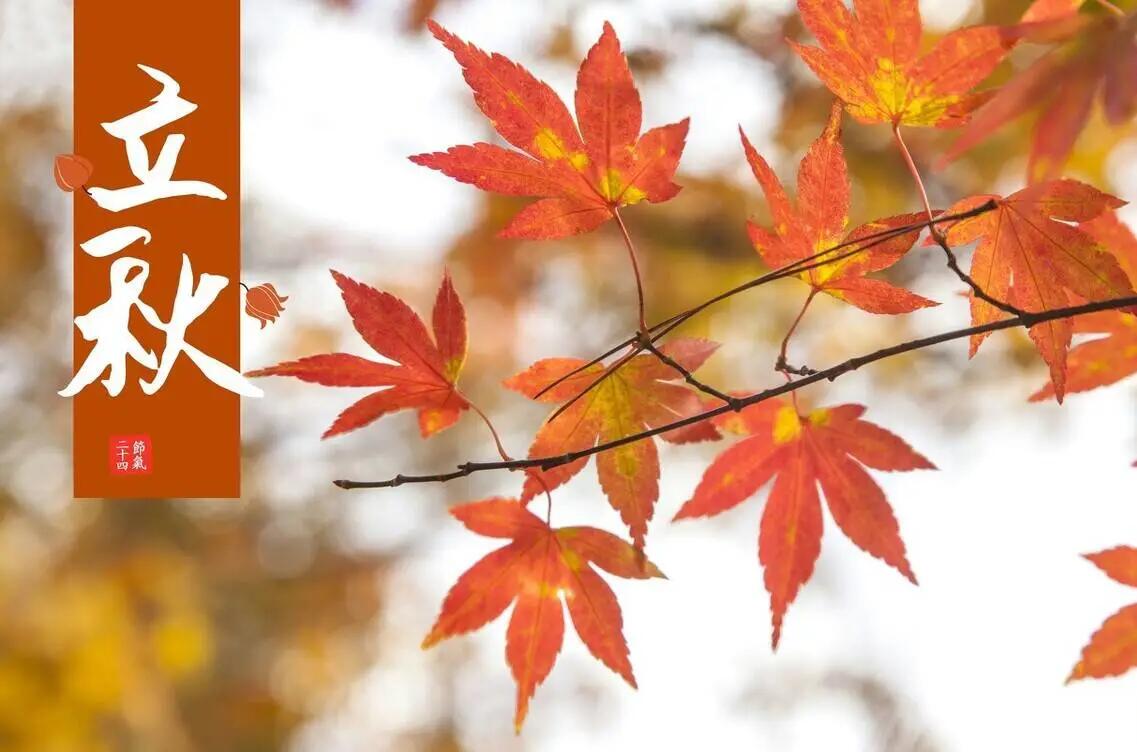Contents:
1.Introduction
2.Historical and Cultural Significance
3.Traditional Customs
4.Agricultural Practices
5.Environmental Changes
6.Modern Observances
7.Conclusion
Introduction to "Li Qiu" - The Beginning of Autumn"Li Qiu" (立秋)
marks the beginning of autumn in the traditional Chinese lunisolar calendar. Falling typically on August 7th or 8th, it is one of the 24 solar terms that guide agricultural activities and reflect the changing seasons.

Historical and Cultural Significance
In ancient China, "Li Qiu" was an important festival for farmers. It signaled the end of the scorching summer and the
beginning of cooler days, which were crucial for the maturation of crops like rice and corn. Celebrations and rituals were
conducted to express gratitude for the harvest and pray for favorable weather in the coming months.
Traditional Customs
Harvest Festivals: In some regions, people celebrate the first harvest of the season with ceremonies and feasts. This tradition
includes offering the first fruits of the harvest to ancestors and deities, symbolizing respect and gratitude.
Food Traditions: Specific dishes are prepared to mark "Li Qiu." Foods that help balance the body's internal heat and
moistureare particularly favored. Eating melons, such as watermelon and cantaloupe, is a common practice, believed to help
eliminate heat and replenish fluids lost during the hot summer months.
Weighing Rituals: An interesting custom in some areas involves people weighing themselves on "Li Qiu." This tradition,
known as "Qiu Qian" (秋千), involves comparing one's weight from the beginning of summer to the beginning of autumn. It is believed that gaining weight during this period is a sign of good health and a prosperous harvest.
Agricultural Practices
For farmers, "Li Qiu" is a critical time for preparing for the autumn harvest. They start to focus on protecting crops from
pests and diseases, ensuring the healthy maturation of late-season grains. It’s also a time to plant autumn vegetables and begin preparations for the winter crops.
Environmental Changes
As the first solar term of autumn, "Li Qiu" signifies a noticeable shift in weather. Temperatures gradually cool down, and
the oppressive heat of summer begins to wane. In many parts of China, this period sees a decrease in rainfall and an increase in clear, crisp days.
Modern Observances
While modern urban life may not strictly follow the agricultural calendar, many people still observe "Li Qiu" through
traditional foods and by acknowledging the change of season. In cities, cultural events and educational programs help keep the traditions and significance of "Li Qiu" alive.
Conclusion
"Li Qiu" is a time of transition and preparation, deeply rooted in Chinese agricultural practices and cultural traditions. It
marks the end of summer's intense heat and the beginning of autumn's cool, fruitful period, embodying a sense of balance
and harmony with nature.
